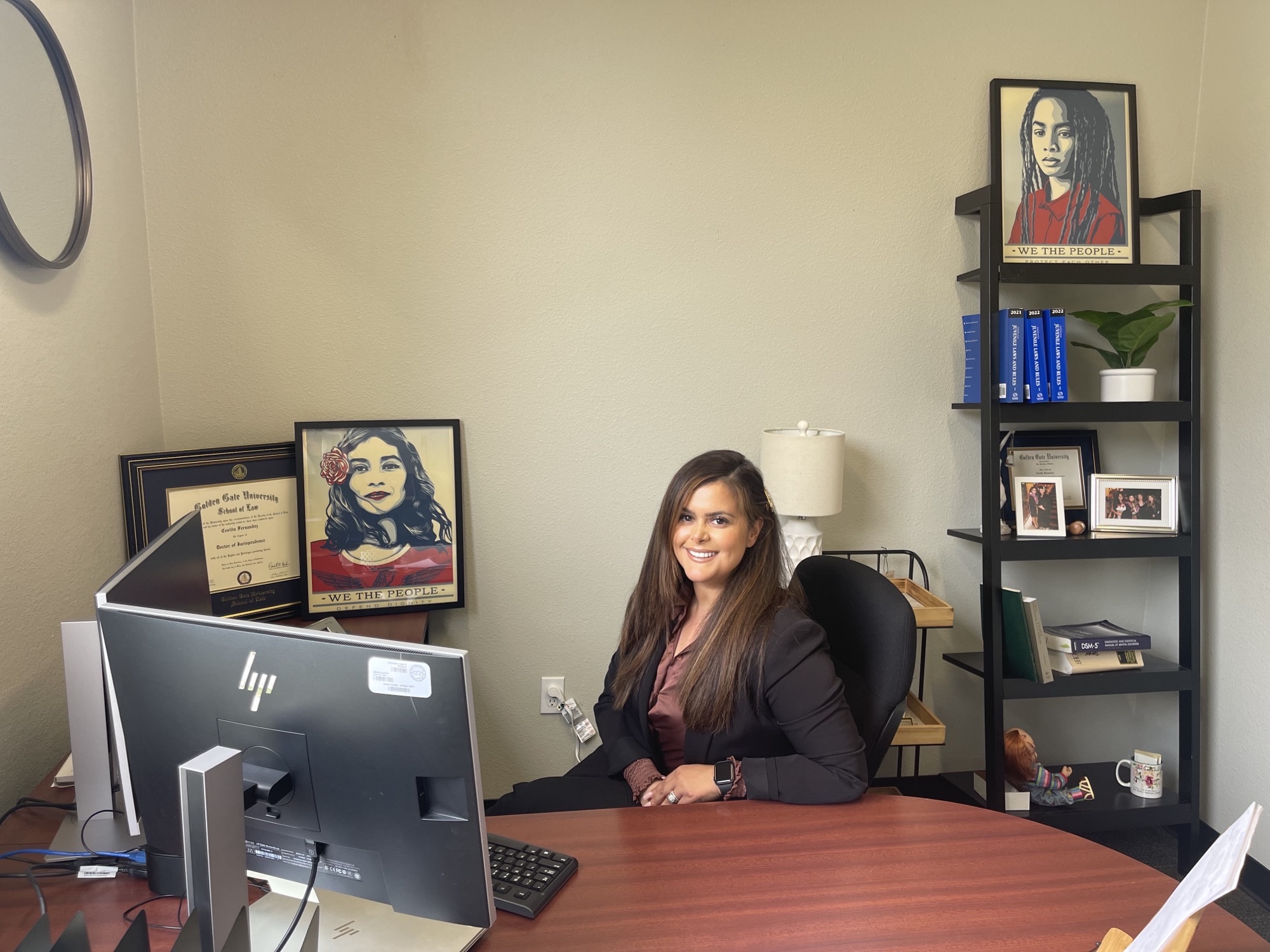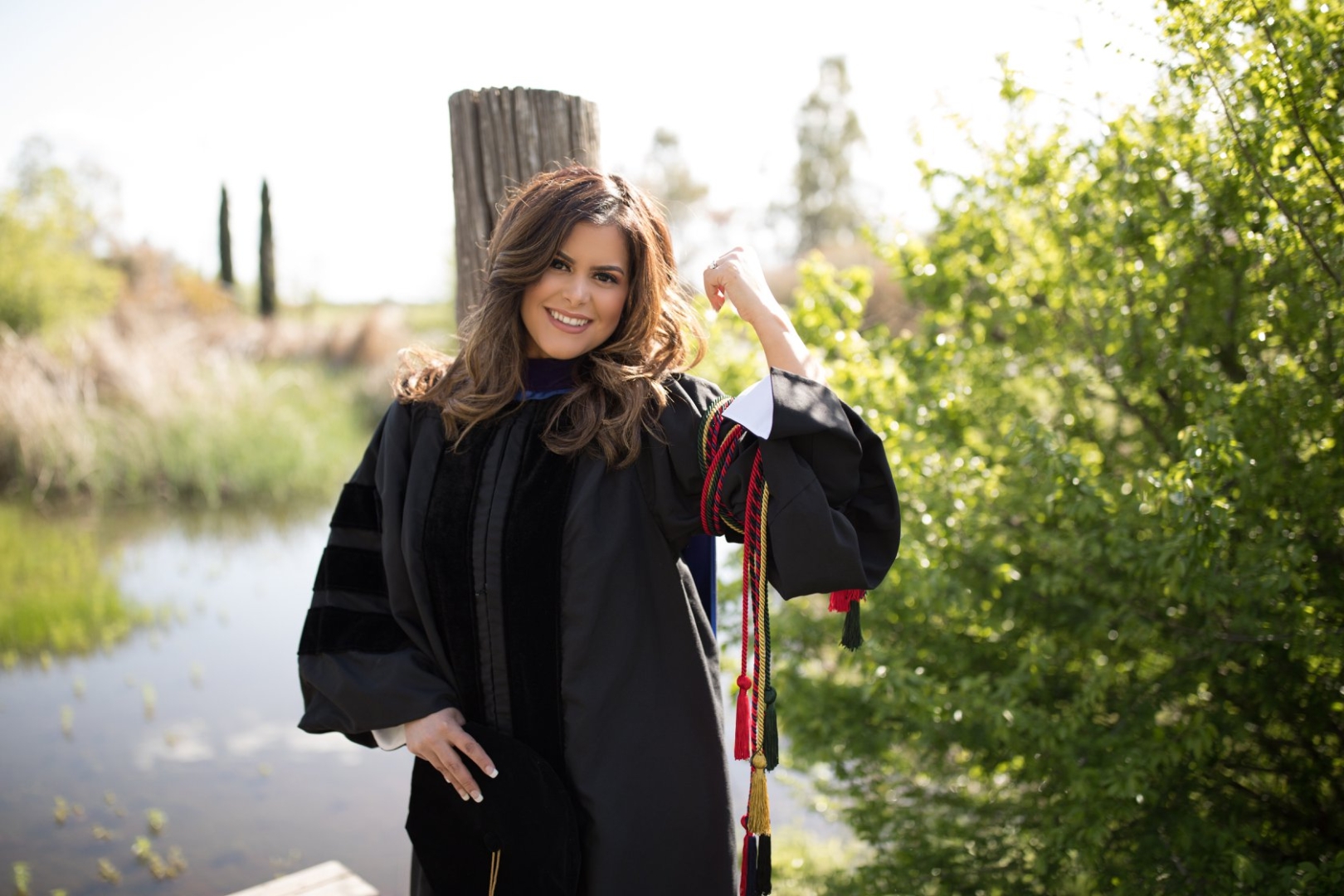Six Questions with Alumna and Santa Clara County Public Defender Cesilia Fernandez

Cesilia Fernandez (Spanish, International Relations, ’11) is proud to tell people that her job is one of the only positions listed in the U.S. Constitution (via the Sixth Amendment). As a public defender, she often meets people on the worst day of their lives, and she works hard to help her clients recognize that their lives don’t have to be defined by their current predicament.
Fernandez is a first-generation Mexican American, and she was the first person in her family to graduate from high school and attend college. She credits Chico State for preparing her to dream big. After earning dual bachelor degrees, she worked as a legal assistant to a public defender, where she developed a passion for criminal justice reform that drove her to pursue a law degree at Golden Gate University. She sees her work as a way to serve her community and meet a critical need.
When did you know you wanted to become an attorney?
The University’s Study Abroad program helped me land an internship at a nonprofit legal clinic during the year I spent in Madrid as an undergraduate. I worked directly with attorneys helping folks facing deportation, and I had the opportunity to sit in on client interviews and hear their stories about coming to Spain from Morocco. The two countries are so close that it’s not dissimilar from Mexico and California. A lot of the immigrants’ stories of struggle, poverty, and the desire to give their children a better life reminded me of my own family’s story. I was very inspired.
The minute I returned to Chico State, I changed my entire path. I started to figure out what I needed to do to go to law school, reaching out to advisors within both my own majors and the legal studies department, and thinking about the LSAT and the path to becoming a lawyer.
As I approached graduation, I sent emails to every attorney I could find in Chico. I explained my background and my interest in the field. I asked for a job-shadowing role so I could figure out if this was something I wanted to pursue, and the response was overwhelmingly positive. Ryan Lamb, who still works as a defense attorney in Chico, met me and hired me on the spot. I ended up managing his law firm for two years.
From your experience as a public defender, where does the criminal justice system need to be reformed the most?
It is imperative to have mental health professionals responding at the scene alongside police officers. There have been so many cases that have landed on my desk where the defendant shouldn’t have been charged with a crime. Instead, these folks should have been taken to hospitals so they could be evaluated and receive mental health services.
Right now, I work in the juvenile department. Juvenile law starts with the premise that the point of our system is to rehabilitate. It is designed to give these juveniles tools and counseling so they can successfully reenter the community and move on with their lives. If we could take that model and apply it to adults, we could view the criminal justice system as a way of giving people resources to ensure they come out of their legal situation with the skills to find jobs. That would go a long way to addressing the repeat-offender issues we currently have.
How did your double-major prepare you for law school and your career?
In my office at the Santa Clara public defender’s office, we have 200 lawyers, and you can count on one hand how many of us are native speakers of Spanish. That’s concerning—we are in a county with a large Hispanic community. My parents only spoke Spanish at home, but my mother and father have second and sixth grade educations. The Spanish I learned at home wasn’t the formal Spanish I learned at Chico State, which prepared me for my career.
Because of my degree, I can communicate with clients in many ways that my colleagues cannot. While I’m explaining what is happening in their case and what the next steps are, I don’t need anyone in the room with me to translate. My major in Spanish has helped hundreds of people and it launched my career. I know my resume stood out because I had a degree in Spanish.

What advice do you have for students considering majoring in romance languages?
I majored in a romance language and I wasn’t sure what I was going to do next. I had a professor, Sarah Anderson, who I was very close to and after one exam, she wrote, “Are you sure you don’t want to pursue a PhD in Spanish?” I kept that because it was so inspiring. I loved my two majors—I love learning about different cultures and languages. It became my passion, and I would never tell any student not to follow their passion. At the same time, think about how that passion, whatever it may be, can you help you find a related career. My passion led me to traveling abroad, which led to an interest in law, which ultimately opened the door to my career.
How is your job different than what people see on TV or in movies?
As with most aspects of the justice system, what you see on TV is quite different than reality. Public defenders have a huge office with a lot of resources and access to many brilliant legal minds. And, they are quite qualified. In my office, I have to go through specific experiences before I can touch certain kinds of cases. We go by levels, experience, and training to ensure lawyers work on cases that fit their qualifications. There are no prerequisites like that with private attorneys, and many clients hire lawyers who aren’t the best fit for their case.
Also, public defenders are in the trenches every day. I manage an entire daily calendar at court, which means I know every judge, every trial attorney, and every bailiff, and I have built those relationships. This is a huge advantage for clients because I can evaluate offered plea deals and other aspects of the case.
Lastly, private attorneys will charge a lot of money to go to trial, so many clients don’t take their case to trial because of financial reasons. Public defenders go to trials more often. And our office will pay for expert witnesses at no cost to the client. Whenever I have a client who is satisfied, I tell them to go home and tell their friends and family to help remove the stigma created by these movies and TV shows.
What are some ways college students can practice impactful social justice advocacy?
It’s very important to vote in local elections. It’s crucial everyone—including students—know who their local DA and sheriff are and what is happening in the community. Students also should get involved in local organizations that support what is important to them. For example, if a student values a woman’s right to choose, there are a lot of peaceful organizations they can work with. Chico State students are fortunate because the community has many organizations that need our help. There are shelters for women and children, and there are shelters that cater to veterans. Another great way to make an impact on the system is to work with an organization that assists people who need help expunging their criminal record so they can get back on track and find jobs again.


